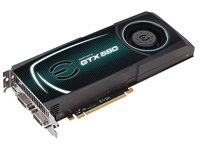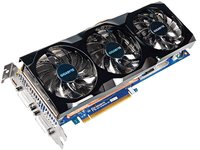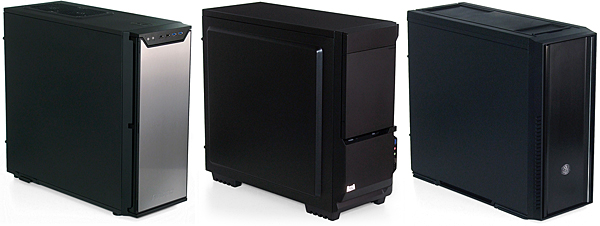Quiet Gaming Cases, Part 1: Antec, Azza, And Cooler Master
The pursuit of performance often dictates that we simply live with a loud PC. Enthusiasts sometimes feel forced to choose between reasonable acoustics and the ventilation needed to overclock. Today, we evaluate three cases that promise to deliver both.
Creating A Quiet Case: More Than One Way To Skin A Cat
Much of the noise that emanates from a modern gaming PC is attributable to high-end graphics cards. Modern GPUs employ two types of coolers: centrifugal and axial. Centrifugal coolers, also known as blowers, use an impeller to push air out through an exhaust at the back of the card. Meanwhile, axial-flow fans have blades that blow directly toward the card, where it exits around the sides of the heat sink and into the case itself.
If all of that is too much for you, just know that both solutions have their advantages and downsides. Blowers are noisy, and they aren't as effective as axial coolers. Axial fans tend to operate more quietly, but pollute the inside of your chassis with their heated air.


As an overclocker, I’m dubious of graphics cards with axial coolers, since they typically have a really bad effect on the ambient temperature of most enclosures. You never want a high-end graphics card to sabotage your CPU overclock, after all.
Yes, you can use water cooling to make the whole axial versus centrifugal debate a moot point. But now you're talking about spending more money, too. There's another way to approach this conundrum, and it often gets overlooked: simply choose a better case.
We expect most cases to have vents for warm air, but we expect quiet enclosures not to have them on their side panels, right next to a noisy graphics card. The concept here is simple: reflected noise is usually less obtrusive than direct noise, and noise-dampening materials help enhance this effect. They also help minimize panel vibration and alter resonant frequencies, often to the point where they're no longer noticed. Those are the features we want to see from a gaming-oriented chassis that its vendor considers quiet.
The table below lists the dimensions, optional cooling capacity, maximum number of drives, and sound-dampening materials for the three cases we're testing today. In the days that follow, we'll be going in-depth on six more enclosures before figuring out which one does its job the best.
| Header Cell - Column 0 | Antec P280 | Azza Silentium 920 | Cooler Master Silencio 650 |
|---|---|---|---|
| Dimensions | |||
| Height | 20.6" | 18.2" | 18.8" |
| Width | 9.1" | 8.8" | 8.2" |
| Depth | 22.3" | 20.5" | 21.0" |
| Space Above Motherboard | 1.3" | 0.8" | 1.3" |
| Card Length | 13.8" | 12.3" | 11.5" - 17.0"** |
| Weight | 21.7 Pounds | 15.8 Pounds | 23.0 Pounds |
| Cooling | |||
| Front Fans (alternatives) | 2 x 120 mm (None) | 1 x 120 mm (None) | 2 x 120 mm (1 x 140 mm) |
| Rear Fans (alternatives) | 1 x 120 mm (None) | 1 x 120 mm (None) | 1 x 120 mm (None) |
| Top Fans (alternatives) | 2 x 120 mm (None) | None (None) | None (1 x 140/120 mm) |
| Left Side (alternatives) | None (None) | None (None) | None (None) |
| Right Side (alternatives) | None (None) | None (None) | None (None) |
| Drive Bays | |||
| 5.25" External | Three | Four | Three |
| 3.5" External | None | One | None |
| 3.5" Internal | Six | Five | Seven |
| 2.5" Internal | Six* +2 | Five* | One*** |
| Card Slots | Nine | Seven | Seven |
| Noise Dampening | |||
| Sides | Polycarbonate | Foam | Foam |
| Top | None | Foam | Foam |
| Front | Foam | Cloth | Cast Aluminum |
| Price | $120 | $80 | $160 |
| *Shared on 3.5" tray**Slots 1-6 w/o Center Cage***By Adapter on 3.5" External Backplane |
Most of the common noise-reducing techniques can be found across the three samples in today’s test, including thicker material to block the noise (Cooler Master’s cast drive door), reflection-weakening foam (Azza’s top and side panels), and vibration-dampening weighted film (Antec’s polycarbonate layer). Before we test the effectiveness of these techniques, we’d first like to show you a few of the features that we think make each of these cases a viable contender in our competition.
Get Tom's Hardware's best news and in-depth reviews, straight to your inbox.
Current page: Creating A Quiet Case: More Than One Way To Skin A Cat
Next Page Antec P280-
jrayx I like the Silencio 650 features, but the airflow is restricted in the front and bottom. And no one sells that case in my country.Reply -
dthesleepless I'd like to see how the Nanoxia Deep Silence 1 compares in your testing.Reply
In my testing I found it to be the most efficient silent case I've ever had on my workbench. -
EzioAs Things I love about silence optimized case: Simple, elegant look. Nothing tacky and doesn't looks like it was made for some 12 years oldReply
Things I hate about silence optimized case: Usually doesn't cool well (poor airflow) and isn't really that much quieter compared to non silence optimized case
It 's really hard to find the right balance but I'm loving the Antec P280. Exterior and interior looks good and seems spacious enough. Price isn't so bad either.
Any chance you could review the Nanoxia Deep Silence 1? Heard a lot of good things about it . -
JOSHSKORN I'd like to see the Fractal Design Define R4 (and/or XL if it's not out of stock, which it currently is) reviewed and compared at some point. It's suppose to be a quiet case. Gaming, not sure about that one.Reply -
killerclick As usual, Cooler Master is mediocre at best. What pathetic company, the only thing they seem to do good is marketing to budget-conscious consumers.Reply -
EzioAs Reply9540164 said:As usual, Cooler Master is mediocre at best. What pathetic company, the only thing they seem to do good is marketing to budget-conscious consumers.
I disagree. A lot of their chassis are good (HAF, Elite). I like their storm stryker/trooper. Most of their peripherals have great quality and reasonable price compared to something like Razer. Their coolers are also great as well (Hyper 212/212+/212 EVO). I just find their power supply unit to be the 2nd grade components, almost all of them I wouldn't use or recommend to other people -
mayankleoboy1 ^ except for the high-end cooler master PSU's. They are quite decent, probably because Seasonic actually makes them.Reply -
Crashman dthesleeplessI'd like to see how the Nanoxia Deep Silence 1 compares in your testing.In my testing I found it to be the most efficient silent case I've ever had on my workbench.JOSHSKORNI'd like to see the Fractal Design Define R4 (and/or XL if it's not out of stock, which it currently is) reviewed and compared at some point. It's suppose to be a quiet case. Gaming, not sure about that one.Perhaps you will...has anybody ever noticed the resemblance between those two?Reply

